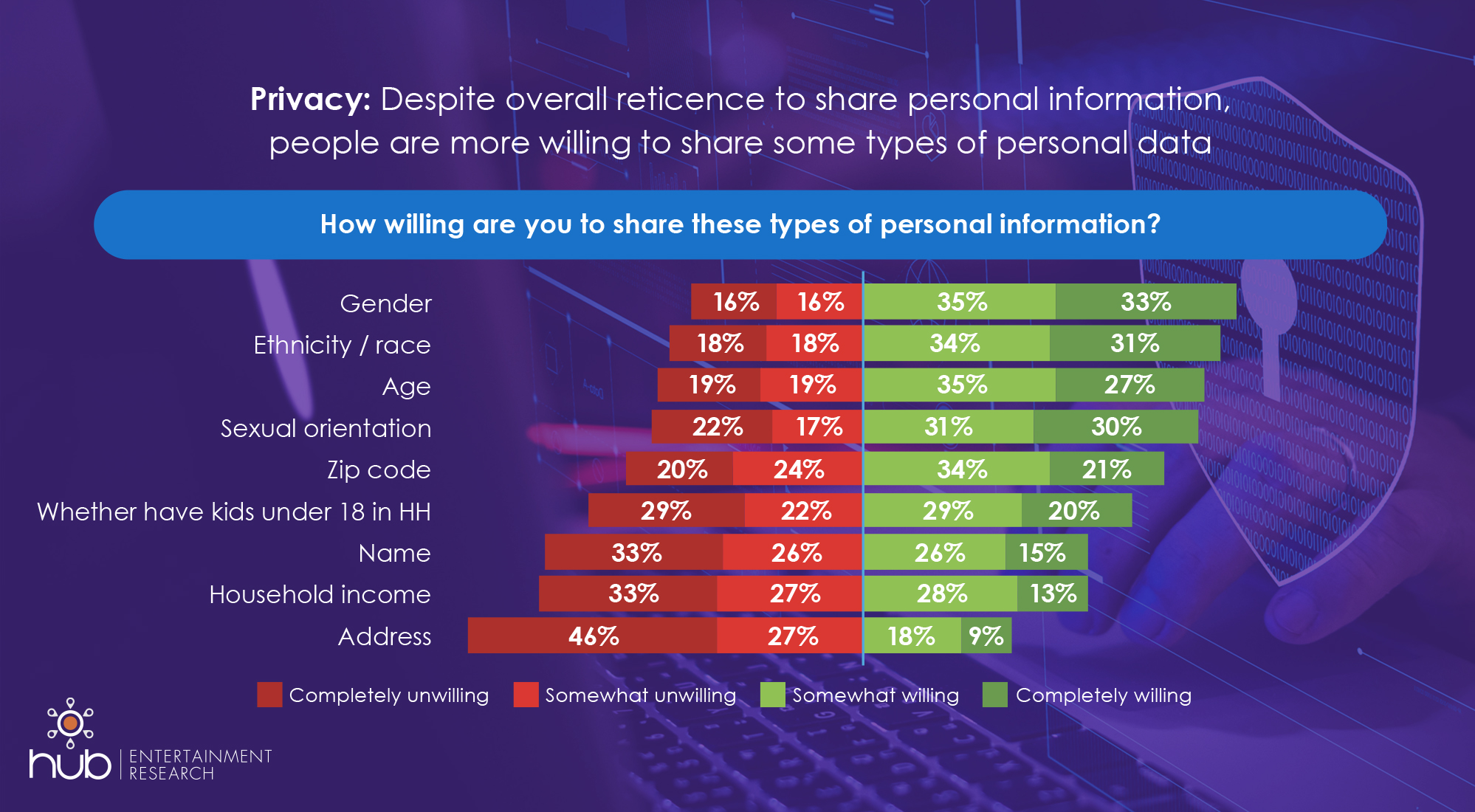Nearly 40% of Consumers Commit Video Piracy, Per Hub Survey
Hub report also shares details on consumers’ feelings about their data being collected

BOSTON—Whether they admit to it or not, 38% of consumers are considered video pirates, according to a new report from Hub Entertainment Research. However, nearly all of them would utilize legal means if available.
This comes from Hub’s “Privacy + Piracy” survey, which provided greater insight into consumers’ video piracy practices and their thoughts on data collection through addressable advertising on smart TVs.
When it comes to piracy, 35% of consumers admit to pirating a video, while 3% do not admit it but say they use pirate sites or apps. About one in four (24%) are considered active pirates, having pirated content in the past six months.
Among the active pirates, 65% say they have considered the financial impact of piracy on those involved in the production and distribution of TV or film content, but it has had little impact on their behavior. A little more than half (52%) of active pirates have received a warning letter or email about their video piracy, but only 45% said that it made them pirate less or stop altogether.
Hub also provides data on password sharing, revealing that 35% of consumers share a password with a person outside their home for a digital media service, while 39% of people use a password from a person outside their household.
Still, 94% of active video pirates say they would use legal means of viewing content if it was more convenient and available to access content; 52% said they would do so even if it cost no more or less than piracy, while 42% said they would even if it cost more.
“Video piracy is concentrated among a minority of the population, and driven by certain demographic groups such as those under 35, those in lower income homes or those in homes with kids,” said David Tice, senior consultant to Hub and co-author of the study. “Much as we saw in the early 2000s with Napster and illegal music downloads, legal threats are less effective as a deterrent than offering pirates a legal alternative—but an alternative must address the reasons for their piracy in the first place.”
The professional video industry's #1 source for news, trends and product and tech information. Sign up below.
On the privacy side of the study, Hub found that 87% of consumers have concerns about how their personal data is collected, used and protected. When it comes to smart TVs, specifically, 71% of consumers say they are aware that the sets can track their viewing data, but 61% are either somewhat or very uncomfortable with the idea of smart TVs collecting data about their viewing.
Part of that uncomfortability is from ad agencies having access to that data. Hub found that 66% of consumers were either somewhat or very uncomfortable with ad agencies collecting and using data about them. In terms of the potential this data collection could be for addressable advertising, only 12% of consumers believe it benefit them a lot to have more ads relevant to them; 45% did say it may be somewhat beneficial.
Still there is an openness among consumers to share certain data, with half or more saying they are OK sharing gender (68%), ethnicity/race (65%), age (62%), sexual orientation (61%), zip code (55%), TV channels watched (54%), specific programs watched (53%) or what they buy at the supermarket (50%). Names, addresses, income, online purchases or use of specific apps or website are among the things a majority of consumers are not willing to share.
“[C]onsumers’ willingness to still share many relevant datapoints, despite their misgivings, means a concerted effort to educate consumers about the benefits of data collection and use should have a positive impact for the ad industry,” said Tice.
For more information, visit Hub’s website.

